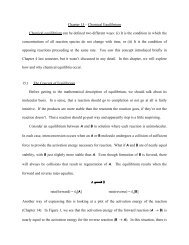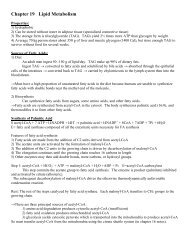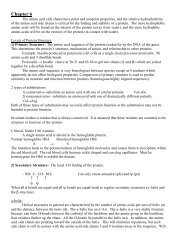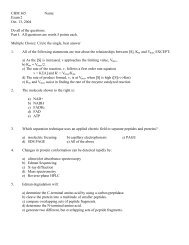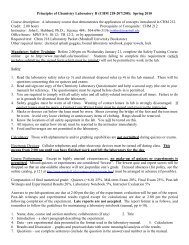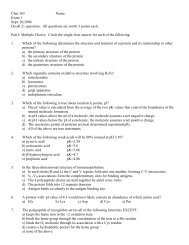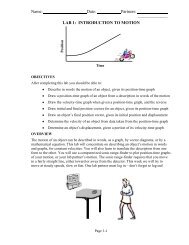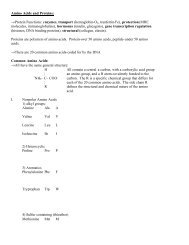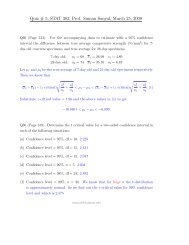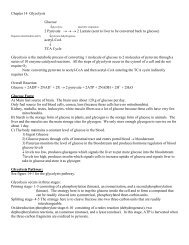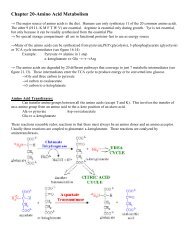THE DHAMMAPADA: THE WAY OF THE BUDDHA, VOL. 9-12 The ...
THE DHAMMAPADA: THE WAY OF THE BUDDHA, VOL. 9-12 The ...
THE DHAMMAPADA: THE WAY OF THE BUDDHA, VOL. 9-12 The ...
You also want an ePaper? Increase the reach of your titles
YUMPU automatically turns print PDFs into web optimized ePapers that Google loves.
362 <strong>THE</strong> <strong>DHAMMAPADA</strong>: <strong>THE</strong> <strong>WAY</strong> <strong>OF</strong> <strong>THE</strong> <strong>BUDDHA</strong>, <strong>VOL</strong>. 9-<strong>12</strong><br />
Whenever you have time, whenever you are unoccupied, suddenly the inner hollowness starts opening up and<br />
you become afraid. It is like an abyss, you are afraid you may slip into it. Hang onto something, invent something<br />
if there is nothing else to hang on to.<br />
That’s why people are even ready to cling to their misery; nobody is ready to drop his misery easily. That’s<br />
my experience of working with thousands of people. All their problems can be reduced to one problem, that<br />
they cling to their misery. It is very difficult for them to drop their miseries because their miseries keep them<br />
occupied. <strong>The</strong>ir miseries help them to avoid themselves and their inner hollowness, emptiness, meaninglessness.<br />
<strong>The</strong>ir miseries are nothing but a way to escape. Of course those miseries are hurting; hence they talk about how<br />
to get rid of them, but they cannot drop them because dropping them means they will be left empty.<br />
So they are in a double bind: they don’t want to be miserable and yet they cannot drop their miseries. Miseries<br />
are not clinging to you, remember you are clinging to your miseries.<br />
You can drop your miseries only when some inner meaning starts flowering in you. Miseries can be dropped<br />
only when meditation starts blooming in you because then you start enjoying your emptiness, it is no longer<br />
empty. Emptiness itself starts having a positive fragrance; it isn’t negative anymore. That’s the whole magic<br />
of meditation: it transforms your emptiness into a positive fulfillment, into something overwhelming. Emptiness<br />
becomes silence, emptiness becomes peace, and emptiness becomes divine, it becomes godliness.<br />
<strong>The</strong>re is no greater magic than meditation. To transform the negative into the positive, to transform darkness<br />
into light, that is the miracle of meditation. To transform a trembling person into a fearless soul, to transform<br />
a person who was clinging to every stupid thing into a nonclinger, into a nonpossessor, that is what happens<br />
through meditation.<br />
Buddha used to call meditation a great sword, it cuts your problems at the very root. It makes you aware that<br />
you need not be afraid of your inner abyss. It is beautiful, it is blissful. You have not experienced its bliss and<br />
beauty because you have never gone into it, you have always been escaping. You have not tasted of it; it is nectar,<br />
it is not poison. But how are you going to know without tasting it? You are running away from something which<br />
can become your life’s fulfillment. You are running away from something which is the only thing worth achieving.<br />
You are running away from yourself.<br />
POSSESSING NOTHING, WANTING NOTHING.... Buddha says that’s where meditation brings the master.<br />
He is no longer interested in possessing and he is no longer desiring anything. All desires have left him because<br />
he has found the ultimate beyond which there is nothing else. He has found the inexhaustible treasure of joy,<br />
of bliss, of ecstasy. What else can he desire? He has found a mine of diamonds; now he cannot go on collecting<br />
colored stones and seashells on the seabeach. Now that whole activity is stupid not that he renounces it.<br />
That is one of the most significant things to be remembered: the real sannyasin never renounces anything, he<br />
simply understands his own inner world its beauty, its benediction, its blissfulness. And understanding it, great<br />
renunciation happens of its own accord. All that is futile slips out of his hands, he cannot cling to it anymore.<br />
He becomes nonpossessive. Nothing is so important to cling to anymore. Everything of this world becomes just<br />
a toy to play with, good for those who are not yet grown up but a meditator has become adult.<br />
Only a meditator becomes adult. Otherwise, your chronological age may be seventy, eighty or ninety, it does not<br />
matter you are only an old child... ninety years old but still immature because still interested in toys, still carrying<br />
your teddy bears, still interested in possessing more and more toys. Children can be forgiven, but you cannot<br />
be forgiven. Only a meditator comes of age; for the first time he becomes mature, grown-up. All childishness<br />
disappears from him.<br />
And the beauty is, when all childishness disappears from you, you again become childlike but on a different<br />
plane. No childishness but absolutely childlike the same purity, the same innocence, the same wonder, the same<br />
awe. Again existence becomes a mystery. But it is not that you are childish you are childlike. It is a totally<br />
different phenomenon. Childishness is immaturity; to have a childlike purity is maturity. <strong>The</strong>y are polar opposites.<br />
POSSESSING NOTHING, WANTING NOTHING... the master is at home. He is no longer running after<br />
shadows, he is not running at all. Just now to say to you that you are also buddhas will look absurd; at least to<br />
you it will look absurd. You will listen, you love me and you will try to understand what I am saying, but deep<br />
down you will not be convinced that you are buddhas.<br />
That’s why we have been finding every possible rationalization to prove to ourselves that buddhas are a totally<br />
different race. Every country has tried to prove to its own heart’s content that ”Buddha belongs to some other<br />
plane of existence, Christ belongs to some other plane of existence. <strong>The</strong>y are amongst us, but they are totally<br />
different from us. <strong>The</strong>y are strangers, they are outsiders. Whatsoever they say is true, but it is not applicable<br />
to us, it has no relevance to our world. We live in an ordinary world and they come from some extraordinary<br />
existence from the beyond.”



